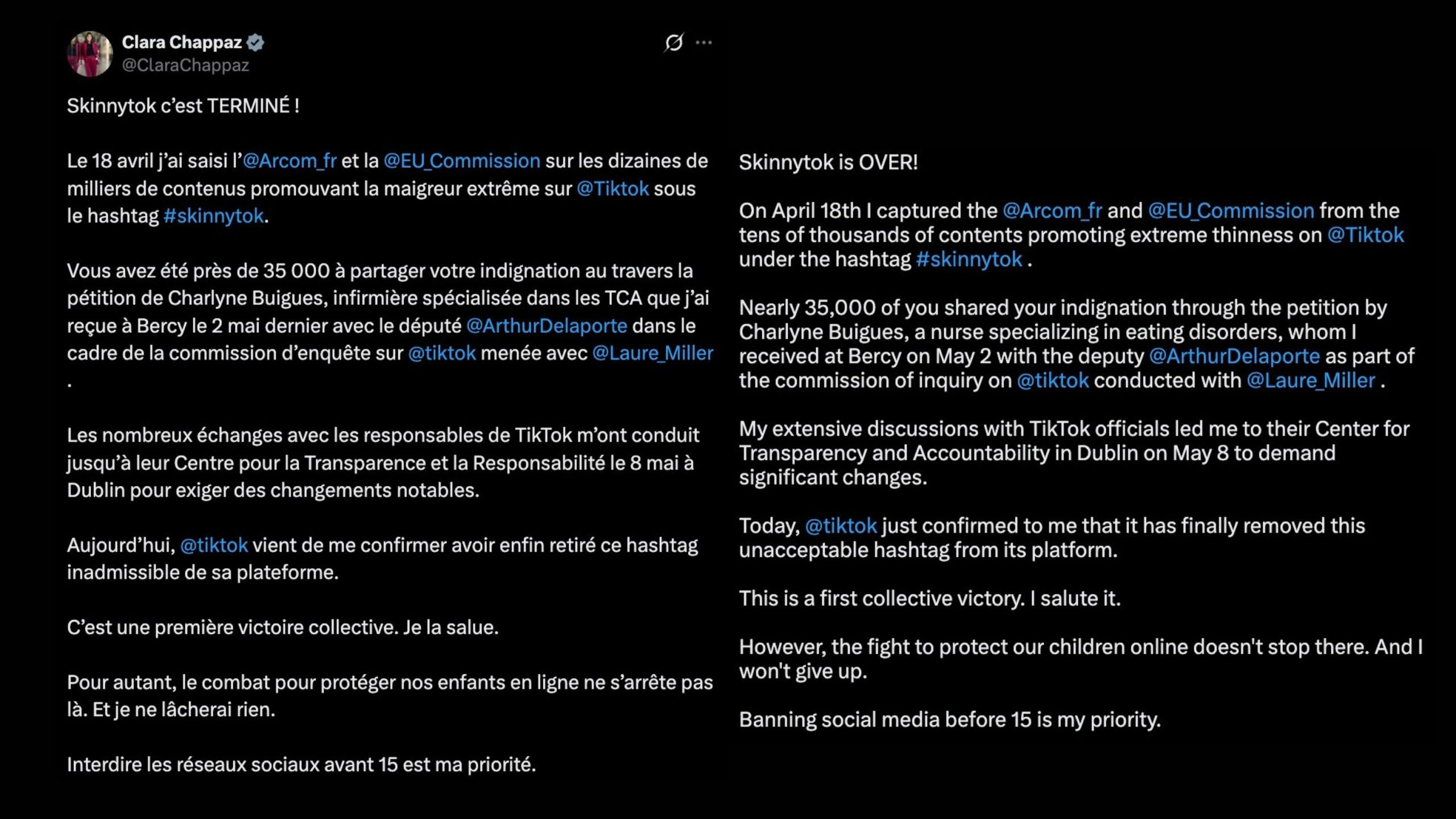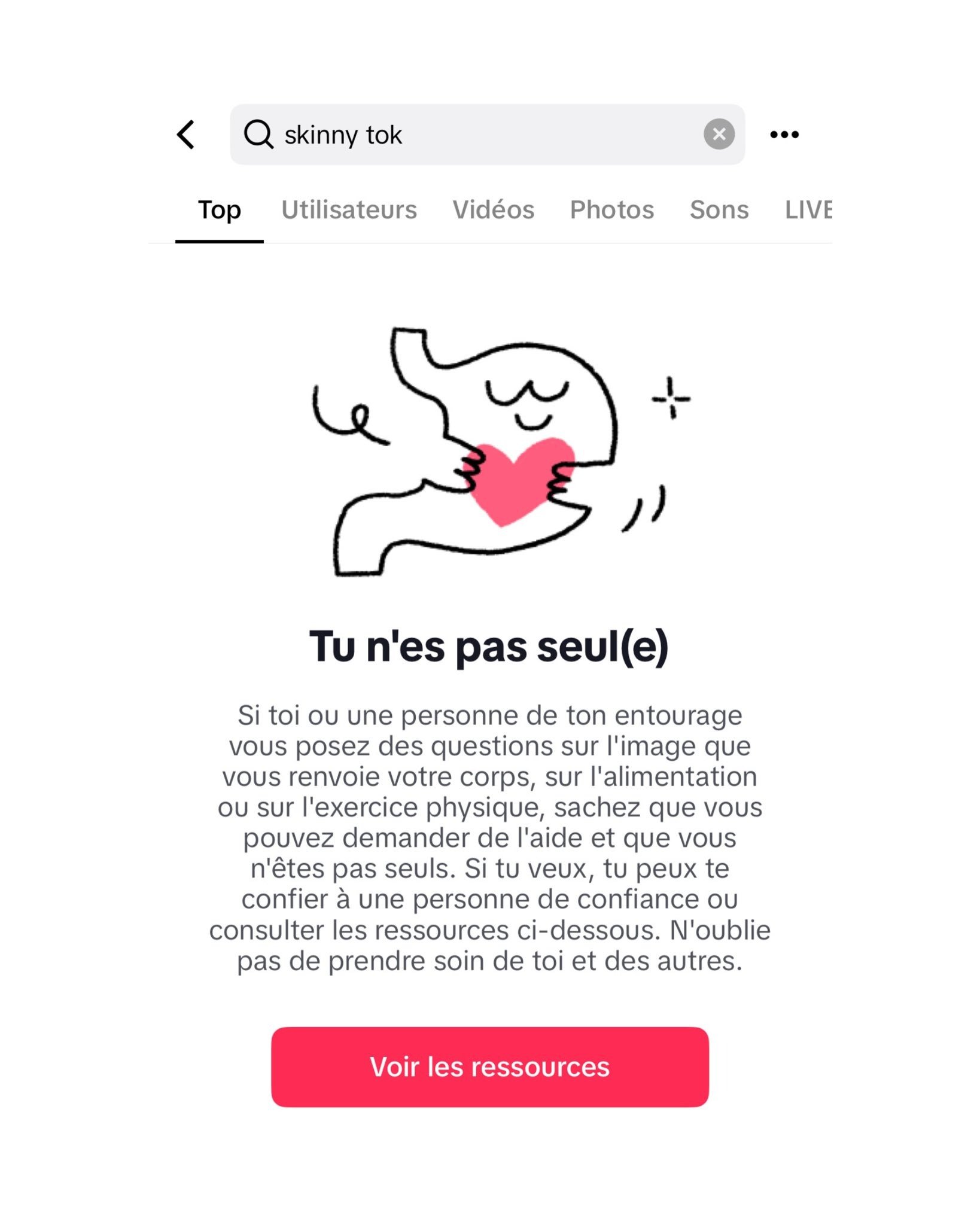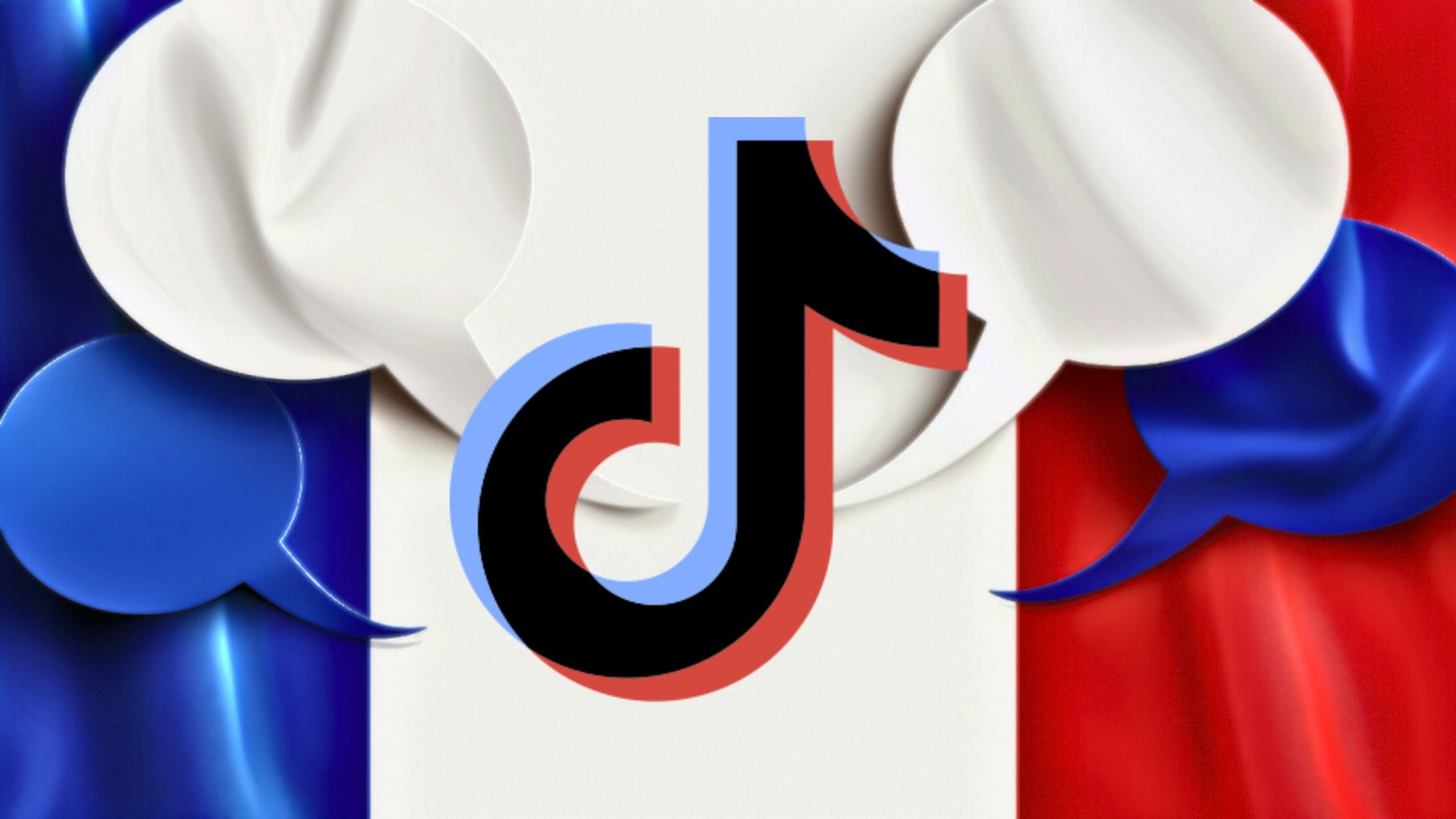TikTok’s decision to block the “SkinnyTok” hashtag across its entire platform followed direct intervention from the French government, revealing how national pressure is increasingly shaping global online speech, even when the content in question is not illegal.
French Digital Minister Clara Chappaz just claimed victory, celebrating the platform’s removal of the term often associated with extreme dieting and weight loss trends. “This is a first collective victory,” she wrote on X after TikTok confirmed the ban was now global.

A spokesperson for the platform stated the hashtag was removed as part of ongoing safety reviews and due to its“link to “unhealthy weight loss content.”
While the move has been portrayed as a step forward for user safety, particularly for young audiences, it also raises deeper concerns about the role of governments in controlling speech on private platforms.
The “SkinnyTok” content, though considered by some to be harmful, does not violate any laws. Still, the French government managed to pressure TikTok into removing it worldwide. This maneuver highlights a growing trend in which authorities seek to influence online content standards beyond their own borders, often using platforms as enforcers.
Rather than work through the European Commission or wait for outcomes from the ongoing investigation under the Digital Services Act (DSA), France chose to confront TikTok directly.

This move sidestepped the EU’s designated enforcement process and cast doubt on the Commission’s relevance in regulating tech companies under the DSA.
France’s unilateral action sets a significant precedent. It shows how a single state can use political leverage to enforce its preferences on a global scale, even when the targeted content remains legal in most jurisdictions. Such pressure tactics erode the principle of a unified and transparent regulatory process and signal a broader shift toward state-led speech controls mediated through tech companies.
The broader concern is that platforms like TikTok, in an attempt to maintain access to key markets, may increasingly comply with informal government demands rather than legal obligations. This model of censorship by proxy allows states to avoid democratic scrutiny while still achieving the removal of speech they oppose.
If content that falls short of illegality can be erased at the insistence of one government, there is little to stop others from demanding similar concessions. The absence of legal due process in these decisions strips users of any path for redress and leaves moderation choices shrouded in opacity.










